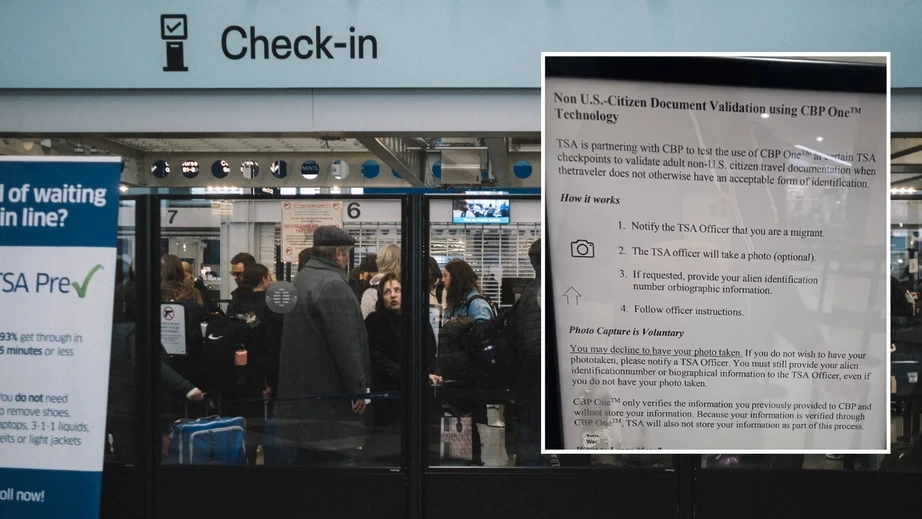Frustration and discontent are brewing among American travelers as signs at US airports seemingly indicate relaxed identification rules for newly arrived migrants, leading to accusations of preferential treatment. While US citizens are obligated to present a valid ID or passport for domestic flights, recent indications suggest a different set of standards for migrants, causing uproar.
The signs suggest a collaboration between the Transport Security Administration (TSA) and Customs and Border Protection (CBP), allowing for the “validation of adult non-US citizen travel documentation when the traveler does not otherwise have an acceptable form of identification.” Notably, migrants can leverage the CBP’s One app as an alternative travel document, a privilege not extended to US citizens.
This controversial process involves migrants notifying TSA officers of their asylum status and having the option to decline a photo. The apparent leniency in identification requirements for migrants has not only puzzled but angered American citizens who perceive it as preferential treatment, raising concerns about transparency and fairness.
Retired CBP Chief Patrol Agent Chris Clem has expressed his dismay, finding the rules offensive and highlighting the disparity in treatment. He questions the prioritization of migrants over the concerns of taxpayers, who, in his view, bear the brunt of rising costs.
Adding to the controversy are doubts about the legitimacy of the CBP One app and the effectiveness of the vetting process for the approximately 45,000 migrants using it monthly. While migrants are required to provide biometric information, including fingerprints, skepticism persists about the thoroughness and accuracy of the vetting process.
Senator Ted Cruz has joined the chorus of critics, emphasizing the perceived double standard in identity verification for US citizens and migrants. He has expressed alarm at what appears to be a weaker standard for verifying the identities of illegal aliens, characterizing the situation as alarming and demanding scrutiny.
In response, the CBP defends its vetting process, stating that it incorporates both biographic and biometric data for those paroled into the country. Despite these assurances, the controversy underscores ongoing concerns about the fairness, security, and transparency of immigration and identification processes at US airports. As the debate continues, it prompts a broader discussion about the need for clarity and consistency in policies that impact both citizens and newcomers to the United States.

